What happened to Manchester's Commonwealth venues?
- Published
Legacy has been one of the key words around London's hosting of the 2012 Olympics, and that was equally true of Manchester's Commonwealth Games in 2002.
One of the largest legacies of any multi-sports event are the arenas and stadia. Ten years on from the Manchester Games, which was the largest multi-sports event ever to be held in Britain until London 2012, what has become of its venues?
City of Manchester Stadium

<bold>Cost: </bold>£112m <bold>Capacity:</bold> 38,000 <bold>Hosted:</bold> Athletics, rugby sevens
<bold>After the Games: </bold>The stadium's temporary stand and running track were removed, a permanent south stand and a new tier of seating were added - increasing the capacity to 48,000 - and in August 2003, Manchester City took up residence at what has since been renamed the Etihad Stadium.
Since its conversion, the stadium has hosted several major sporting events, including the 2008 UEFA Cup Final, boxer Ricky Hatton's defeat of Juan Lazcano - in front of the biggest crowd ever to watch boxing live since WWII - and a rugby league international between England and Australia.
It has also hosted several pop and rock concerts from the likes of Oasis, Take That and Bruce Springsteen.
Regional Athletics Arena
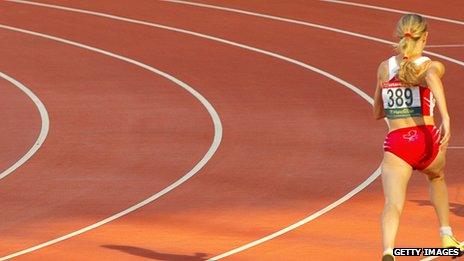
<bold>Cost: </bold>£3.5m <bold>Capacity:</bold> 6,000 <bold>Hosted:</bold> Athletics warm-up
<bold>After the Games: </bold>Built alongside the stadium as a training and warm-up facility, the Regional Athletics Arena has since gone on to become Manchester's top athletics facility, hosting the AAA's annual National Athletics Trial and the Paralympic World Cup, a multi-sport event which has been hosted in Manchester since 2005, alongside a number of regional track and field competitions.
The arena is also open for the public to use and hosts meetings and training by a number of local athletics clubs, including Sale Harriers, Belle Vue Racers and Manchester Kestrels.
Manchester Aquatics Centre
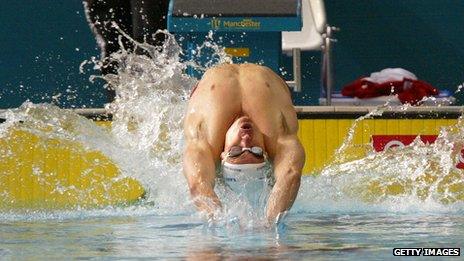
<bold>Cost:</bold> £32m <bold>Capacity: </bold>2,500 <bold> Hosted:</bold> Swimming, synchronised swimming, diving
<bold>After the Games: </bold>Purpose-built for the Commonwealth Games, the Manchester Aquatics Centre boasted two Olympic length pools and a diving pool.
In the 10 years since the event, it has hosted several major national and international swimming and diving events, including those at the Paralympic World Cup. It is also the home of British Paralympic Swimming and is the training base for Australia's Olympic swimmers during London 2012.
The Aquatics Centre has also been open to the public since the Commonwealth Games, allowing the people of Manchester access to the Olympic standard pools.
National Squash Centre
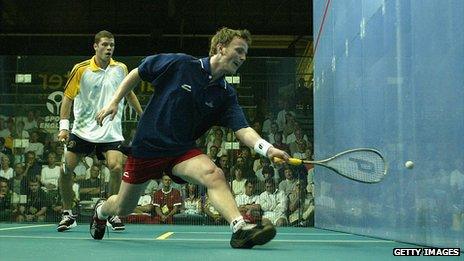
<bold>Cost: </bold>£3.5m <bold>Capacity:</bold> 1,800 <bold>Hosted:</bold> Squash
<bold>After the Games:</bold> Built specifically for the Games, the National Squash Centre has continued to be the key venue for the sport in the UK, hosting the British National Squash Championships since 2003 and the annual British Grand Prix.
Table Tennis Centre
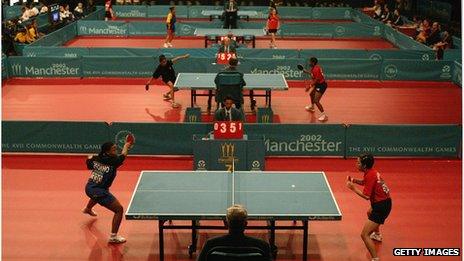
<bold>Cost:</bold> Unknown <bold>Capacity:</bold> 1,500 <bold>Hosted:</bold> Table tennis
<bold>After the Games:</bold> After hosting the early stages of the table tennis tournament at the Commonwealth Games, the Table Tennis Centre widened its remit to host other sports.
With six outdoor courts and six indoor courts, it has become the Regional Tennis and Football Centre, hosting regional tournaments and the general public for both sports.
Heaton Park bowling greens
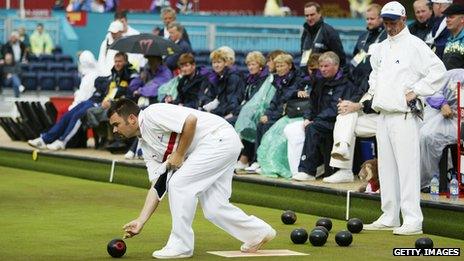
<bold>Cost:</bold> £1m <bold>Capacity:</bold> 2,000 <bold>Hosted:</bold> Lawn bowls
<bold>After the Games:</bold> Heaton Park underwent a major restoration project costing about £32m in the run-up to the Commonwealth Games, which included the building of a new pavilion and four flat greens for the lawn bowls competition.
The complex has since become a regional centre of excellence for bowls and hosted major national tournaments in the sport.
Belle Vue Leisure Centre
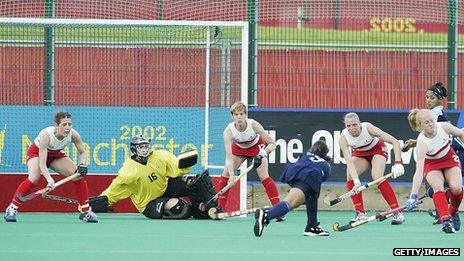
<bold>Cost:</bold> £3m <bold>Capacity:</bold> 2,500 <bold>Hosted:</bold> Hockey
<bold>After the Games:</bold> Belle Vue Leisure Centre was given a £3m facelift to host the hockey at the Commonwealth Games, with two international standard water-based pitches added to its facilities.
Alongside the hockey pitches, an indoor sports hall with eight badminton courts, cricket academy and a conference centre were also added and the centre has made full use of its new additions since the Games.
The centre, which has been designated the regional performance centre for both hockey and badminton, has hosted hockey internationals and houses the training base for England's under-16 and under-18 hockey squads.
Bolton Arena

<bold>Cost:</bold> £10m <bold>Capacity:</bold> 6,000 <bold>Hosted:</bold> Badminton
<bold>After the Games:</bold> While not specifically a Commonwealth building project, Bolton Arena opened in 2001 and was the home of badminton during the Games a year later.
After the Games, it became the Lawn Tennis Association's North West Regional Tennis Centre and has hosted Great Britain's matches in the Davis Cup.
It also has a running track, football pitches and basketball and netball courts which host both regional tournaments and the general public.
National Cycling Centre

<bold>Cost:</bold> £9.5m <bold>Capacity:</bold> 3,500 <bold>Hosted:</bold> Track cycling
<bold>After the Games:</bold> The Manchester velodrome opened for the World Track Cycling Championships in 1996 and is more of an Olympic legacy than a Commonwealth one, as it was a major part of the city's bids to host the Olympic Games in 1996 and 2000. At the time, it was the only Olympic standard velodrome in the country.
It came of age as the venue for track cycling at the 2002 Commonwealth Games and has been a significant factor in Great Britain's track successes since that time, as it is home to British Cycling and the likes of Sir Chris Hoy and Bradley Wiggins.
It has been confirmed that, despite London building a velodrome for the Olympics, British Cycling will remain based in Manchester after the 2012 games.
Alongside British Cycling's training, the velodrome also hosts major international cycling events and has also seen basketball and boxing take place under its roof.